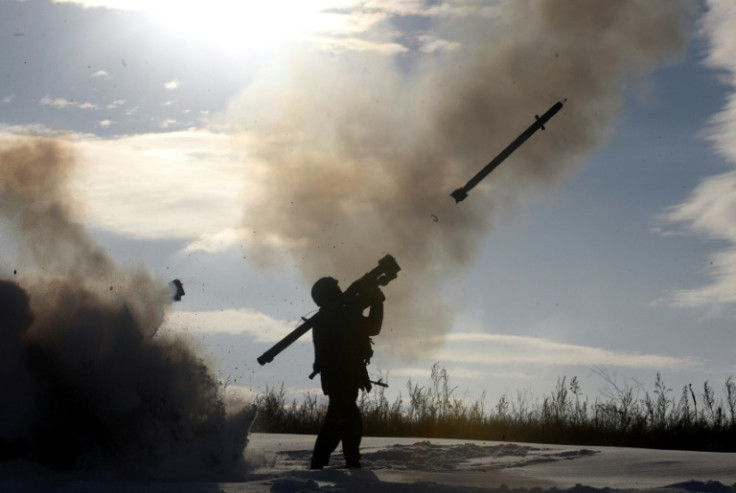Ukraine Air Defenses Under Pressure As Russia Strikes Infrastructure

Ukraine's air defenses are playing a key role in countering Russia's invasion, preventing Moscow's forces from gaining control of the skies and helping shield the country against missile and drone attacks.
But with Russia stepping up strikes on Ukraine's energy infrastructure as it faces growing losses on the ground, Kyiv is pressuring its supporters -- in particular the United States -- to provide advanced equipment such as Patriot missiles and F-15 warplanes.
"As Ukraine continues to fight, air defense capabilities are becoming critical for their future success," General Mark Milley, the top US military officer, said Wednesday.
"An integrated air and missile defense system is what is necessary as Ukraine repels Russian aerial attacks."
Highlighting the urgency for Ukraine, the country's military said it recorded 111 Russian missile strikes and 26 kamikaze drones on Tuesday, which Milley said "was likely the largest wave of missiles that we've seen since the beginning of the war."
When Russia invaded in February, Ukraine's air defenses largely consisted of Soviet-era planes and missile systems, which Kyiv used effectively to deny Moscow air superiority.
That has affected "just about every aspect of Russian air power employment," said Karl Mueller, a senior political scientist at the RAND Corporation who specializes in military and national security strategy.
Medium- and long-range Ukrainian systems have pushed Russia to conduct missile attacks to keep its aircraft out of harm's way -- a tactic that is limited by Moscow's stocks of such weapons, Mueller said.
And short-range systems have "really limited the ability of the Russians to be able to use their attack helicopters and ground attack aircraft over the battlefield."
Mueller attributed the success of Ukraine's air defenses to several factors, including that the country "had a lot of surface-to-air missile systems" that were "competently operated."
Ukraine's air defenses were also almost all mobile, he said, helping them to disperse and escape Russian strikes.
Additionally, "the Russian air force isn't that good at attacking air defense systems," lacking the specialized units the US military has for that mission.
Ukraine's air defenses have been significantly augmented since the start of the war: the United States provided NASAMS and Germany IRIS-T -- two advanced systems -- while older equipment such as the S-300 and HAWK systems and Stinger missiles have also been donated.
Milley said a Wednesday meeting of dozens of Ukraine's supporters "focused on how we, as a global coalition, can provide the right mix of air defense systems and ammunition for Ukraine to continue its control of the skies and prevent the Russians from achieving air superiority."
Kyiv's forces are having success in striking Russian missiles and drones, shooting down 102 aerial targets since November 11, according to its military.
But no air defense system can block all attacks -- as demonstrated by strikes knocking out power to millions of people on Tuesday -- and Ukraine is seeking additional aid.
Foreign Minister Dmytro Kuleba said Thursday on Twitter that he is "convinced that the time for 'Patriots' has come," after asking for F-15 and F-16 warplanes earlier in the week.
Concerns that Patriot missiles or Western jets could be seen by Russia as an escalation is one factor that likely contributed to reluctance to provide such items, while the time needed to train Ukrainian forces on their use is another.
But "in the long run, Ukrainians are going to need Western-made aircraft," Mueller said.
As Moscow's campaign of strikes continues, augmenting Ukraine's air defenses is "clearly... a top-level priority in terms of assisting Ukrainians to survive against the Russian attacks," he said.
© Copyright AFP 2025. All rights reserved.




















